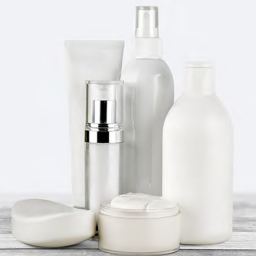Restoring and optimizing adrenal function is often a priority for achieving patients’ long-term wellness goals. It is common when testing adrenal function to find that a patient’s adrenals are under or over-producing cortisol. Numerous options exist for improving adrenal function, including basic nutrients, herbal products, and direct hormone replacement. When trying to decipher these options, choosing the safest, most efficacious approach can be challenging.
 In situations when cortisol levels are high, contributing factors should be identified. First, exposure to exogenous hormones needs to be ruled out. If an exposure is identified that occurred during testing, retesting is indicated to get true physiologic values. If cortisol appears to be high from endogenous production, further investigation is warranted. Elevations of cortisol, especially at night, can be diagnostic for Cushing’s syndrome. Obtaining a relevant case history is necessary to rule in or rule out excess cortisol production from a tumor. Other testing may also be indicated. Once Cushing’s syndrome, endocrine tumors, and exogenous exposures have been ruled out, many of the remaining cortisol elevations will be due to acute stressors, blood sugar problems, or underlying inflammation.
In situations when cortisol levels are high, contributing factors should be identified. First, exposure to exogenous hormones needs to be ruled out. If an exposure is identified that occurred during testing, retesting is indicated to get true physiologic values. If cortisol appears to be high from endogenous production, further investigation is warranted. Elevations of cortisol, especially at night, can be diagnostic for Cushing’s syndrome. Obtaining a relevant case history is necessary to rule in or rule out excess cortisol production from a tumor. Other testing may also be indicated. Once Cushing’s syndrome, endocrine tumors, and exogenous exposures have been ruled out, many of the remaining cortisol elevations will be due to acute stressors, blood sugar problems, or underlying inflammation.
A careful case history and additional testing can usually uncover the culprits for elevated cortisol. Asking the patient what they experienced the day of testing can help identify situations where acute stressors were elevating values. In cases where cortisol is high due to acute stressors, phosphatidylserine and/or some of the treatments listed below for lowering cortisol can be considered.
Blood sugar problems are also commonly turned up on testing, the most typical pattern presenting with elevated first morning cortisol. It is hypothesized that individuals with blood sugar problems may not tolerate the drop in blood sugar levels that can occur overnight. If blood sugar levels fall during sleep, the adrenal glands will release cortisol to prevent blood sugar from falling too low. Many times this presents on testing with an elevated first morning cortisol. In situations where cortisol is elevated due to blood sugar dysregulation, stabilizing blood sugar is the primary strategy, rather than reducing cortisol directly.
In other cases, individuals suffering from pain and inflammation will also demonstrate elevated cortisol values on testing. If an individual describes having pain outright, or testing reveals elevated inflammatory markers, treating the cause of the inflammation may help normalize the cortisol response.
For the majority of patients, starting with nutrients and herbal formulations is appropriate for treating adrenal issues in general. Dosed properly, nutrients and herbs can restore function and help alleviate symptoms along with providing a wide margin of safety. Nutrients are the foundational support for the adrenals, helping to supply the constituents needed for the production of steroid hormones.
Nutrients critical for adrenal function include the following:
Pantothenic acid
Pantothenic acid has been shown in the research literature to raise cortisol levels.1,2 It also appears to improve stress resiliency, acting as a modulating agent for adrenal function.3 Pantothenic acid is a precursor for acetyl coenzyme A production, a compound essential for the production of corticosteroid hormones. In patients with low cortisol output, therapeutic dosing starts at 500mg twice daily. In patients for whom testing reveals both reduced and elevated cortisol values, pantothenic acid is not necessarily contraindicated, as it appears to improve the acute stress response.
Vitamin C
Higher doses (1 gram or more) of vitamin C appear to attenuate cortisol output in acute stressful situations.4,5 Interestingly, the adrenals secrete vitamin C in response to stress along with cortisol.6 Dosing is usually 500-1000mg or more for adrenal support.
Zinc
Zinc deficiency has been shown to impair a healthy stress response and zinc appears to moderate cortisol release.7,8 In humans, stable zinc levels maintain stable cortisol levels postoperatively, preventing a sharp increase in cortisol.9 Overall, zinc appears important in adrenal function. Safe long-term oral dosing is approximately 30mg daily, as doses from food and supplements exceeding 40mg can cause problems with copper deficiency.
Biotin
Research on biotin’s effects on adrenal response are thin. One study in fruit flies demonstrated increased life span and improved stress resiliency.10 Biotin is involved in regulation of genes involved in glucose metabolism, and clinical studies have shown improvement in blood sugar control with biotin supplementation.11 There are a number of anecdotal case reports of biotin helping with energy levels and even fibromyalgia. Because of biotin’s effects on regulating blood sugar, biotin is most indicated in cases with elevated first morning cortisol due to blood sugar problems, or other documented blood sugar or insulin dysregulation, although biotin is still worth considering in more general cases. Biotin is quite safe, and therapeutic dosing starts around 4mg (4000mcg) but can easily be increased to 8mg or more daily.
In addition to the listed nutrients, consider a B-complex to help balance the formula.
Flavonoids
Flavonoids are a broad class of compounds found in numerous plants. Many flavonoid-rich plants have been shown to have beneficial effects on adaptation to stress and stress response including rooibos (Aspalathus linearis),12 pomegranate (Punica granatum),13 flax (Linum usitatissimum),13 chocolate (Theobroma cacao),14 and green tea (Camellia sinensis),15 among others.
Combined with the basic nutrients, herbal adaptogens help to tailor the formula to an individual’s needs. Some adaptogenic herbs to consider include:
Ginseng (Panax ginseng)
An herb with a long history of use, ginseng is typically considered a “hot” adaptogen, being more stimulatory than the other adaptogens for increasing energy levels. Due to its stimulatory effects, ginseng is worth considering in more fatigue-based cases that do not include anxiety symptoms. There is some concern that ginseng may raise blood pressure, although some studies have shown blood pressure lowering effects.16
Licorice (Glycyrrhiza glabra)
Licorice is the classic herb for adrenal support, with corticosteroid-sparing properties.17 The main drawback with licorice is that it can deplete potassium by increasing mineralocorticoid activity, which can significantly raise blood pressure.18 In individuals with hypertension it is contraindicated. When using licorice, blood pressure should be carefully monitored and recommendations could include increased potassium intake from food sources.
Siberian ginseng (Eleutherococcus senticosus)
Eleutherococcus, or siberian ginseng, is a more neutral herbal adrenal support. In sensitive individuals, it may be a better choice than some of the stronger or “hotter” herbal alternatives.
Ashwagandha (Withania somnifera)
Another herb with a long history of use in Ayurvedic medicine, ashwagandha is one of the more relaxing adrenal restoratives.19 In individuals with lower adrenal output and anxiety or depression, ashwagandha can be helpful. Ashwagandha has been shown in animal studies to raise active thyroid hormone levels,20 and there is one case report of thyroid toxicosis associated with its use.21 Overall, the herb appears quite safe; however, in autoimmune thyroid cases caution should be applied.
Rhodiola (Rhodiola rosea)
Rhodiola is an adaptogen that has research supporting its use for mental emotional symptoms. Preliminary studies appear to indicate that beyond acting as an adaptogen, rhodiola may help with depression and anxiety.22,23 In individuals struggling with lowered adrenal output and mental emotional symptoms, rhodiola may help improve functioning on multiple levels.
Maca (Lepidium meyenii)
Research into maca is just starting to demonstrate its potential for helping with hormonal issues in women.24] In cases that include perimenopausal or postmenopausal symptoms, maca may be a good choice for helping both with restoring adrenal function and decreasing hormonally-related symptoms.
Adrenal glandulars, pregnenolone, DHEA, and cortisol replacement
Other options for treating lowered adrenal function exist, including adrenal glandulars, pregnenolone, DHEA, and direct cortisol replacement. The main concern with these treatments is based on the potential for suppression of endogenous hormone production. Adrenal glandulars (desiccated adrenal) may contain adrenal hormones including cortisol, epinephrine, and norepinephrine, just as desiccated thyroid contains active thyroid hormones. The risks from pregnenolone and DHEA are probably low when used in more conservative doses, but suppression has not been well researched. When cortisol is administered, it provides negative feedback on the hypothalamic axis, decreasing endogenous production. In some cases, this down-regulation may be long-standing or permanent. The amount of cortisol in any glandular product is not listed on the label, since the FDA does not allow supplements with known amounts of cortisol to be sold over-the-counter. Therefore, amounts of cortisol in glandular products are usually unknown and the risk of adrenal suppression, while likely low, is difficult to estimate.
In cases where adrenal function does not improve with standard treatment and lifestyle adjustments, and symptoms are severe enough to negatively influence quality of life, pregnenolone, DHEA, or cortisol replacement can be considered. Pregnenolone is most indicated with low cortisol combined with low 17-OH progesterone, which is a precursor to cortisol. Pregnenolone usually works to raise cortisol, although it can raise other hormone levels as well. If used for more than a couple months, checking all the downstream hormones for dysregulation is warranted. Dosing of pregnenolone to raise cortisol is usually up to 1mg/kg per day. For DHEA, treatment is most indicated with low measured DHEA levels. DHEA is not a precursor to cortisol; it increases DHEA and other downstream hormones. Dysregulation of downstream hormones with DHEA use is common in both men and women, and hormone levels should be monitored. Dosing is usually increased slowly, starting at 5mg and increasing in 5mg increments, with a maximum dose of 10mg for women and 25mg for men.
If cortisol is utilized, patients should be made completely aware of the risk/benefit ratio through proper informed consent. One study appeared to indicate that dosing of 5 to 10mg of hydrocortisone daily for one month did not lead to significant adrenal suppression.25 Another study utilizing dosing of 13mg/m2 (approximately 20-25mg daily based on body surface area) of hydrocortisone for 12 weeks documented suppression of cortisol production in close to half of treated patients.26 Combining cortisol with nutrients and herbs with the goal of using cortisol for the shortest duration would likely provide greater safety than stand-alone long-term cortisol supplementation.
Typically, an effective treatment approach should show clinical and laboratory results by three months. Always take into account if an individual has life stressors that are not well managed and consider other lifestyle factors including exercise, diet, and social interactions. Symptom improvement is not necessarily quick, taking place over weeks to months, making it important to set patients’ expectations appropriately.
Restoring adrenal function in patients can provide a number of benefits. Knowing the options available can enhance effective treatment strategies for managing patients’ symptoms and improving their well-being.
This article has been extracted from ChronoBiology 20.
References
- Fidanaza A, Floridi S, Lenti L. Panthenol and glucocorticoids. Boll Soc Ital Biol Sper. 1981;57(18):1869-72.
- Jaroenporn S, Yamamoto T, Itabashi A, et al. Effects of pantothenic acid supplementation on adrenal steroid secretion from male rats. Biol Pharm Bull. 2008;31(6):1205-8.
- Dumm ME, Laken B, Ralli EP. Factors influencing adrenal weight and adrenal cholesterol in rats following stress. J Nutr. 1955;56(4):517-31.
- Peters EM, Anderson R, Nieman DC, Fickl H, Jogessar V. Vitamin C supplementation attenuates the increases in circulating cortisol, adrenaline and anti-inflammatory polypeptides following ultramarathon running. Int J Sports Med. 2001;22(7):537-43.
- Brody S, Preut R, Schommer K, Schürmeyer TH. A randomized controlled trial of high dose ascorbic acid for reduction of blood pressure, cortisol, and subjective responses to psychological stress. Psychopharmacology (Berl). 2002;159(3):319-24.
- Padayatty SJ, Doppman JL, Chang R, et al. Human adrenal glands secrete vitamin C in response to adrenocorticotrophic hormone. Am J Clin Nutr. 2007;86(1):145-9.
- Chen WQ, Cheng YY, Zhao XL, Li ST, Hou Y, Hong Y. Effects of zinc on the induction of metallothionein isoforms in hippocampus in stress rats. Exp Biol Med (Maywood). 2006;231(9):1564-8.
- Brandão-neto J, De mendonça BB, Shuhama T, Marchini JS, Pimenta WP, Tornero MT. Zinc acutely and temporarily inhibits adrenal cortisol secretion in humans. A preliminary report. Biol Trace Elem Res. 1990;24(1):83-9.
- Faure H, Peyrin JC, Richard MJ, Favier A. Parenteral supplementation with zinc in surgical patients corrects postoperative serum-zinc drop. Biol Trace Elem Res. 1991;30(1):37-45.
- Landenberger A, Kabil H, Harshman LG, Zempleni J. Biotin deficiency decreases life span and fertility but increases stress resistance in Drosophila melanogaster. J Nutr Biochem. 2004;15(10):591-600.
- Maebashi M, Makino Y, Furukawa Y, Ohinata K, Kimura S, Sato T. Therapeutic evaluation of the effect of biotin on hyperglycemia in patients with non-insulin dependent diabetes mellitus. J Clin Biochem Nutr. 1993;14:211-218.
- Schloms L, Smith C, Storbeck KH, Marnewick JL, Swart P, Swart AC. Rooibos influences glucocorticoid levels and steroid ratios in vivo and in vitro: a natural approach in the management of stress and metabolic disorders?. Mol Nutr Food Res. 2014;58(3):537-49.
- Naveen S, Siddalingaswamy M, Singsit D, Khanum F. Anti-depressive effect of polyphenols and omega-3 fatty acid from pomegranate peel and flax seed in mice exposed to chronic mild stress. Psychiatry Clin Neurosci. 2013;67(7):501-8. doi:+10.1111/pcn.12100.
- Wirtz PH, Von känel R, Meister RE, et al. Dark chocolate intake buffers stress reactivity in humans. J Am Coll Cardiol. 2014;63(21):2297-9.
- Chen WQ, Zhao XL, Wang DL, et al. Effects of epigallocatechin-3-gallate on behavioral impairments induced by psychological stress in rats. Exp Biol Med (Maywood). 2010;235(5):577-83. doi:+10.1258/ebm.2010.009329.
- Park BJ, Lee YJ, Lee HR, et al. Effects of Korean red ginseng on cardiovascular risks in subjects with metabolic syndrome: a double-blind randomized controlled study. Korean J Fam Med. 2012;33(4):190-6. doi: 10.4082/kjfm.2012.33.4.190.
- Methlie P, Husebye EE, Hustad S, Lien EA, Løvås K. Grapefruit juice and licorice increase cortisol availability in patients with Addison’s disease. Eur J Endocrinol. 2011;165(5):761-9. doi: 10.1530/EJE-11-0518.
- Shimojo M, Stewart PM. Apparent mineralocorticoid excess syndromes. J Endocrinol Invest. 1995;18(7):518-32.
- Sarris J, Mcintyre E, Camfield DA. Plant-based medicines for anxiety disorders, part 2: a review of clinical studies with supporting preclinical evidence. CNS Drugs. 2013;27(4):301-19. doi: 10.1007/s40263-013-0059-9.
- Panda S, Kar A. Changes in thyroid hormone concentrations after administration of ashwagandha root extract to adult male mice. J Pharm Pharmacol. 1998;50(9):1065-8.
- Van der hooft CS, Hoekstra A, Winter A, De smet PA, Stricker BH. [Thyrotoxicosis following the use of ashwagandha]. Ned Tijdschr Geneeskd. 2005;149(47):2637-8.
- Ross SM. Rhodiola rosea (SHR-5), Part 2: A standardized extract of Rhodiola rosea is shown to be effective in the treatment of mild to moderate depression. Holist Nurs Pract. 2014;28(3):217-21. doi: 10.1097/HNP.0000000000000030.
- Sarris J, Mcintyre E, Camfield DA. Plant-based medicines for anxiety disorders, part 2: a review of clinical studies with supporting preclinical evidence. CNS Drugs. 2013;27(4):301-19. doi: 10.1007/s40263-013-0059-9.
- Lee MS, Shin BC, Yang EJ, Lim HJ, Ernst E. Maca (Lepidium meyenii) for treatment of menopausal symptoms: A systematic review. Maturitas. 2011;70(3):227-33. doi: 10.1016/j.maturitas.2011.07.017.
- Cleare AJ, Heap E, Malhi GS, Wessely S, O’keane V, Miell J. Low-dose hydrocortisone in chronic fatigue syndrome: a randomised crossover trial. Lancet. 1999;353(9151):455-8.
- Mckenzie R, O’fallon A, Dale J, et al. Low-dose hydrocortisone for treatment of chronic fatigue syndrome: a randomized controlled trial. JAMA. 1998;280(12):1061-6.



